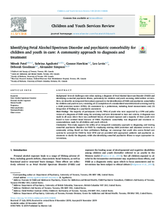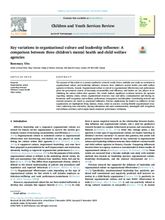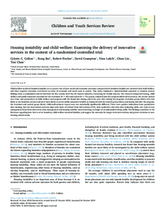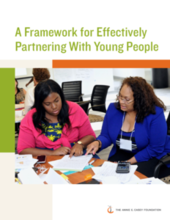Displaying 91 - 100 of 437
This article presents findings and recommendations from the first year of a two-year evaluation of the Local Interagency Network for Children and Family Services (LINCS) program, a part of the Shasta County Department of Social Services in northern California.
The current study examined the effects of implementing a new program model on the quality of relationships between direct care providers and residents in group care agencies.
This qualitative study examines the Minnesota One-Stop for Communities Parent Mentor Program (MPMP). African American parents previously involved in the child welfare system conceptualized and spearheaded this program for parents currently involved in the system to reduce the involvement of families of color in child welfare, provide support and build protective factors.
In this study, comparative analysis and linear mixed modeling with propensity score matching were used to identify the extent to which students involved with child protection service (CPS) utilized an inter-district open enrollment option and to examine their academic achievement before and after switching schools.
This article describes an integrated three-phase approach to the identification of Fetal Alcohol Spectrum Disorder (FASD) and psychiatric comorbidity for children and youth in care, consisting of: (1) completion of a standardized neurobehavioral screening tool by a child protection worker (CPW); (2) assessment by a pediatrician, including facial measurements and; (3) integration of findings in a psychiatric assessment.
The purpose of this article is to present qualitative research results from a multiple case study on variations in organizational culture and leadership influence between three children’s mental health and child welfare agencies in Ontario, Canada.
This study employed a mixed-methods approach to examine process findings from a randomized control trial from the first county-level Pay for Success initiative, Partnering for Family Success.
This chapter from the book Education in Out-of-Home Care outlines the skills that are necessary for a successful start to formal schooling for children placed into out-of-home care (OHC).
The present research from the book Education in Out-of-Home Care examined the question of possible gender effects of a tutoring program for children in foster care in Ontario, Canada, as well as several other questions of a practice-related nature, including the impact of implementation fidelity on the effectiveness of the tutoring program and the children’s and caregivers’ perception of the tutoring.
This guide from the Annie E. Casey Foundation in the United States explores authentic youth engagement, including how it benefits young people, why it works and what it looks like in real life.






